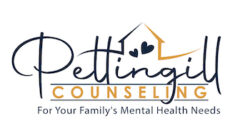Understanding Kids Therapy: A Guide for Parents and Caregivers
Children, like adults, can face emotional and psychological challenges that impact their well-being and development. Kids therapy, also known as child therapy or play therapy, is a specialized form of counseling designed to help children navigate their feelings, behaviors, and relationships. This article explores what kids therapy is, the various types available, and how it can benefit children.
What is Kids Therapy?
Kids therapy involves a range of therapeutic approaches tailored to meet the unique needs of children. Unlike traditional adult therapy, which often relies heavily on verbal communication, therapy for children may incorporate play, art, and other creative methods to facilitate expression and understanding. The goal is to help children process their emotions, develop coping skills, and foster resilience.
Types of Kids Therapy
- Play Therapy: This is one of the most common forms of therapy for young children. Through play, children can express their feelings and experiences in a safe environment. Therapists may use toys, games, and art materials to help children communicate what they might struggle to express verbally.
- Cognitive-Behavioral Therapy (CBT): CBT focuses on helping children identify and change negative thought patterns and behaviors. It is particularly effective for anxiety, depression, and behavioral issues. CBT teaches kids coping skills and problem-solving techniques to manage their emotions.
- Art Therapy: This approach uses creative processes to help children express their emotions. Art therapy can be particularly beneficial for those who have difficulty verbalizing their feelings, allowing them to communicate through drawing, painting, or other artistic forms.
- Family Therapy: Sometimes, the dynamics within a family can contribute to a child’s emotional struggles. Family therapy involves working with the entire family to improve communication, resolve conflicts, and strengthen relationships.
- Group Therapy: In group therapy, children can share their experiences with peers facing similar challenges. This setting provides support and fosters social skills, helping children feel less isolated in their struggles.
Benefits of Kids Therapy
- Emotional Expression: Therapy provides a safe space for children to express their feelings, helping them understand and manage emotions like sadness, anger, or fear.
- Improved Coping Skills: Through therapy, children learn valuable coping mechanisms that they can apply in everyday situations, promoting resilience and adaptability.
- Behavioral Improvement: Therapy can address behavioral issues by helping children understand the reasons behind their actions and teaching them appropriate responses.
- Enhanced Communication: Kids therapy fosters better communication skills, enabling children to express their needs and feelings more effectively, both with peers and adults.
- Support for Parents: Many therapy sessions involve parent participation or provide resources for caregivers, helping them understand their child’s needs and how to support them effectively.
- Building Self-Esteem: As children learn to manage their emotions and navigate challenges, their self-esteem often improves, contributing to overall emotional health.
When to Seek Kids Therapy
Parents and caregivers should consider kids therapy if:
- A child exhibits persistent emotional distress, such as anxiety, sadness, or anger.
- Behavioral issues arise, including aggression, withdrawal, or difficulty with social interactions.
- There are significant life changes or stressors, such as divorce, loss of a loved one, or moving to a new school.
- A child struggles with academic performance or peer relationships.
- Emotional issues interfere with daily functioning or quality of life.
Conclusion
Kids therapy is a valuable resource for children facing emotional and psychological challenges. By providing a supportive environment and tailored interventions, therapy can empower children to understand and manage their emotions, enhance their coping skills, and build stronger relationships. If you suspect your child could benefit from therapy, reaching out to a qualified mental health professional can be a crucial step toward promoting their emotional well-being and overall development.

